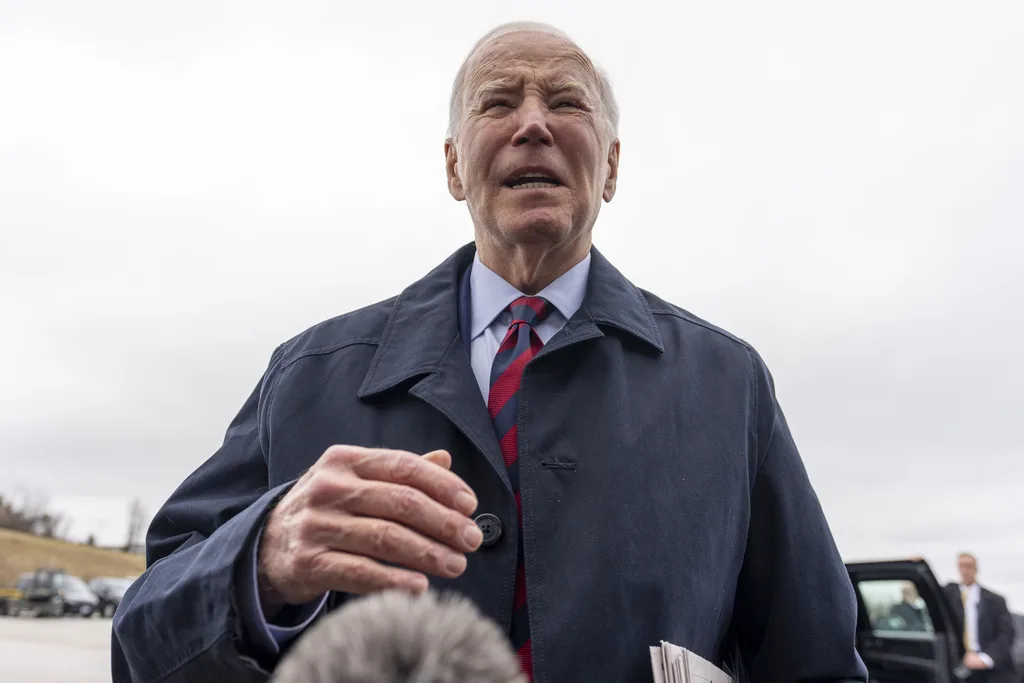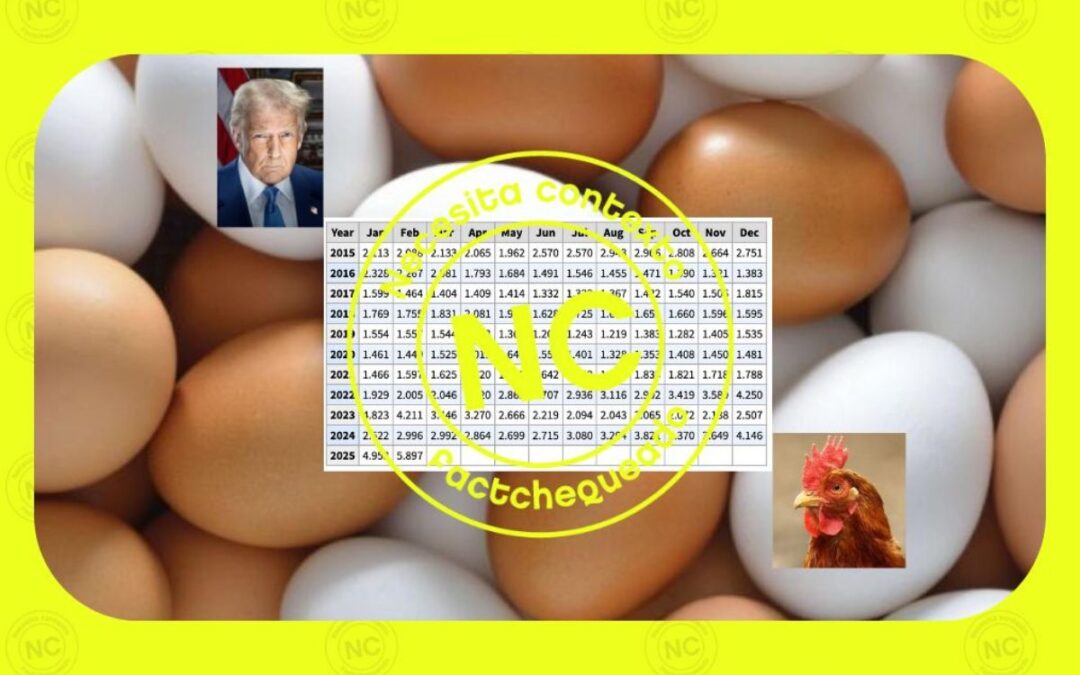
President Joe Biden speaks with reporters before he boards Air Force One, Tuesday, March 5, 2024, in Hagerstown, Md. (AP Photo/Alex Brandon)
The Biden administration last week announced several new actions to promote fairer rental markets and boost the supply of affordable housing and manufactured homes.
Among these actions is the extension of a federal housing financing program that was set to expire this coming September.
The US Department of Housing and Urban Development (HUD) and the Treasury Department announced the extension of the Housing Finance Agency Risk-Sharing Initiative. The program provides capital for state and local housing finance agencies so that they can offer federally-backed loans at lower interest rates in order to create and maintain affordable rental units.
The program has been extended indefinitely which, according to the Federal Housing Administration (FHA), will allow 38,000 affordable rental units to be built or preserved over the next decade nationwide.
The Biden administration restarted the Risk Sharing Initiative in 2021, after the program was suspended by the Trump administration. Since then, it has provided access to nearly $2 billion in financing for the rehabilitation and building of almost 12,000 housing units, according to the White House.
“Simply put, the supply of housing has not kept pace with increasing demand, making housing too expensive for far too many people,” HUD Deputy Secretary said in a statement. “HUD is using every single tool we have to ensure the families we serve can access affordable homes.”
The Biden administration also announced that it will be proposing new rules in the coming weeks to make the HOME Investment Partnerships Program “easier to use.”
The HOME program provides grants to state and local governments to create affordable and low-income housing. Over the last four years, more than $4 billion has been used to fund the building, buying, and rehabilitation of affordable housing nationwide, according to the White House.
The exact details of these new rules have not yet been released, but HUD has said that it will “streamline” requirements for the administration of these grants, as well as the requirements for community organizations building new homes. The rules will also update certain requirements for those receiving these grants, such as how much those entities are allowed to charge tenants for rent. They’ll also outline new tenant protections.
HUD also announced $225 million in funding for grants that can be used to assist homeowners with repairs, upgrades, and improvements to infrastructure within manufactured housing communities. Applications for Preservation and Reinvestment Initiative for Community Enhancement (PRICE) grants are now open.
HUD has also released resources clarifying its policies that prohibit certain non-rent fees in its Multifamily, Public Housing, and Housing Choice Vouchers/Project Based Vouchers programs. These new resources make it clear that certain fees, such as application and screening fees, are prohibited, and will ensure that tenants are not charged or penalized for these fees.
These actions from the Biden administration come as the US deals with an ongoing housing crisis.
Nationally, there is a shortage of more than seven million affordable homes for the 10.8 million plus extremely low-income families in the US. Seventy percent of these families are also severely cost-burdened, meaning they use more than half of their income on rent. There’s also no state or county in the country where a renter working full-time at minimum wage can afford a two-bedroom apartment.
These efforts also come as housing and rental prices have soared in recent years. Mortgage rates are nearing 8% and with steadily rising home prices and the lowest inventory of homes for sale in over a decade, the housing market is increasingly pricing out working and middle-class families.
In Sept. 2020, the median home sale price in Nevada was $344,900. As of Jan. 2024, that figure had risen to $432,900, a nearly 26% increase, according to Redfin. In Las Vegas, the average cost of rent is $1,457 per month, up over 30% from the beginning of the pandemic. These figures are in line with a national trend that’s shown rising home and rent prices since the beginning of the pandemic.
In November, the Biden administration also announced that it’s launching a multi-agency effort to ensure access to affordable housing, introducing a slew of resources to help convert high-vacancy commercial buildings to residential use.
The White House says these efforts are an attempt to create “much-needed housing that is affordable, energy efficient, near transit and good jobs, and reduce[s] greenhouse gas emissions.”
Specifically, the administration is supporting the conversion of high-vacancy commercial buildings to residential use through new financing, technical assistance, and sale of federal properties.
The president is also expected to propose new ideas to address the housing crisis on Thursday evening, during his third State of the Union address.
Biden will reportedly call on Congress to pass legislation to create a $10,000 tax credit for first-time homebuyers and people selling their starter homes; to offer down payment assistance for first-generation homebuyers; to expand tax credits and other programs to build and renovate more than two million homes and rental units; and to address rental, homebuying, and refinancing costs.
He’ll also reportedly reiterate his commitment to fighting price-gouging by corporate landlords and cracking down on hidden rental “convenience” fees.

You’re paying taxes today—but are billionaires and big corporations dodging theirs?
Community organizations across the US are coming together this Tax Day to tell Congress to prioritize people over profits—here’s how you can get...

¿Qué es una recesión y por qué en Estados Unidos se habla de una en marzo de 2025?
Por Jonnathan Pulla de Factchequeado Las búsquedas de la palabra “recesión” y frases que la incluyen como “¿qué es una recesión?” aumentaron de...

Trump afirma que el precio de huevos bajó 30%, pero solo al por mayor; en los supermercados siguen subiendo
Si sólo tienes unos segundos, lee estas líneas: El presidente Donald Trump afirmó recientemente que el precio de los huevos ha bajado casi un 30% en...

Medical debt will no longer appear on credit reports for all Americans
This new rule will erase an estimated $49 billion in unpaid medical bills from the credit reports of roughly 15 million Americans, according to the...

Sick of hidden fees on concert tickets and hotel stays? A new federal rule bans them.
Now, live event businesses and hotels must clearly list their prices in both their advertising and pricing information. American consumers on...

Trump’s tariff plan would raise prices and ‘reduce the living standard of Americans,’ economists say
Trump’s plan would effectively be a sales tax that disproportionately harms working-class families and could cause a trade war that hurts US...




